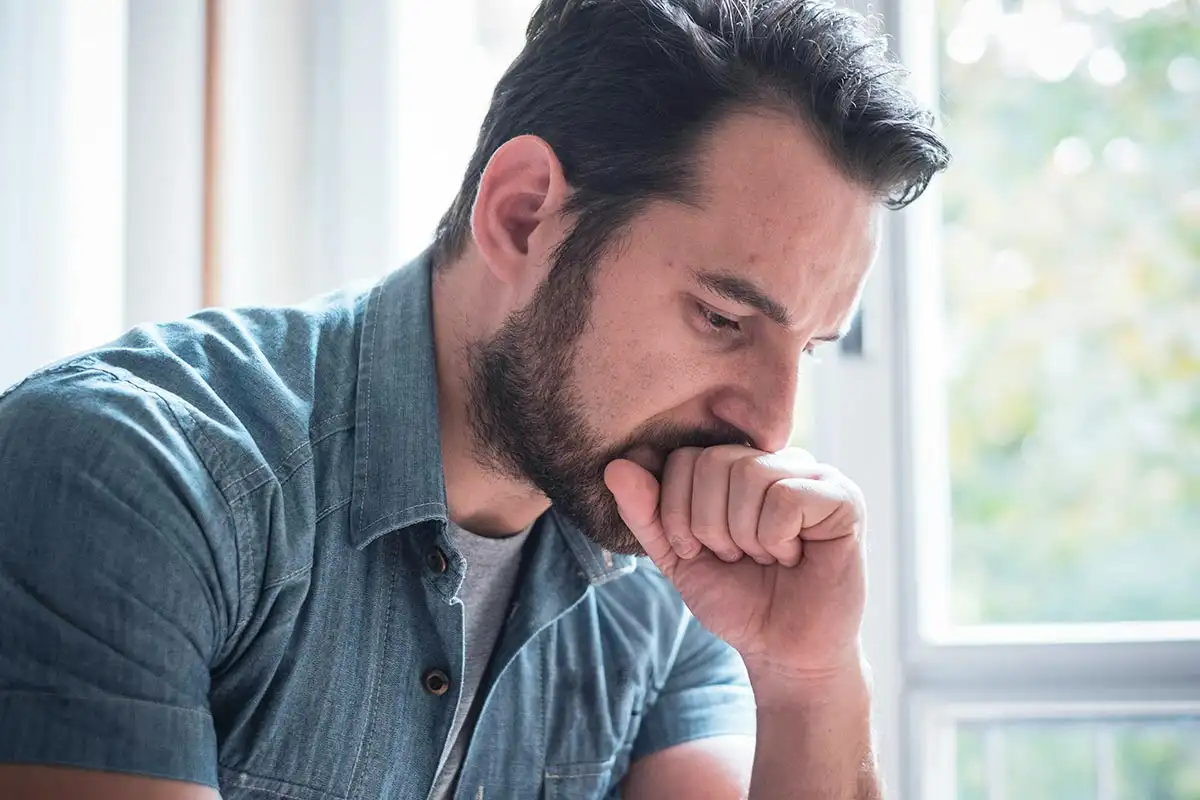
Polydrug Abuse Treatment Success: IOP Insights for San Diego (2025)
Medically Reviewed by:

Dr. Marco M. Zahedi
Medical Director, Compassion Recovery Center

Dr. Michael Majeski
Licensed Psychologist (LP), Compassion Recovery Center
Table of Contents
The Growing Challenge of Polydrug Abuse in San Diego and the Promise of IOP
Living in vibrant communities like San Diego comes with many joys, but it also presents unique challenges. One such growing concern, particularly as we look towards 2025, is polydrug abuse. This term refers to the use of more than one type of drug, either simultaneously or in close succession. The complexity of polydrug abuse makes it particularly dangerous and difficult to treat, increasing the risk of severe health consequences, including overdose. In areas like San Diego, where diverse lifestyles and social scenes can sometimes inadvertently contribute to substance use patterns, understanding and addressing polydrug abuse is paramount. It’s not just about one substance; it’s about the compounded effects and the intricate web of addiction that multiple substances can create.
The importance of tackling polydrug abuse effectively cannot be overstated. Individuals caught in this cycle often face a greater severity of withdrawal symptoms, a higher likelihood of co-occurring mental health disorders, and a more challenging path to recovery. Traditional treatment methods may sometimes struggle to address the multifaceted nature of using multiple substances. This is where innovative and flexible approaches become crucial. We need treatment solutions that are not only evidence-based but also adaptable to the individual’s specific combination of substances and their unique life circumstances. For residents of San Diego and greater Southern California, finding accessible and effective Drug Rehab Programs and Alcohol Rehab Programs is a critical step towards healing.
Intensive Outpatient Programs (IOPs) have emerged as a powerful tool in the fight against addiction, including complex cases of polydrug abuse. An IOP offers a structured and comprehensive treatment experience without requiring the individual to reside in a facility. This means people can often continue with work, school, or family responsibilities while receiving a high level of care. For many, especially those in busy urban environments like San Diego, this flexibility is key. At Compassion Recovery Center, we specialize in providing Virtual IOP Program services, extending our reach and making high-quality care accessible remotely. This approach combines the rigor of traditional IOP with the convenience and privacy of telehealth, offering a modern solution to a complex problem. If you’re exploring treatment options for yourself or a loved one, understanding how IOPs can help is an important first step. We encourage you to reach out today to learn more.

Understanding Polydrug Abuse: A Complex Challenge
Polydrug abuse, also known as polysubstance use, is the consumption of two or more psychoactive substances, either at the same time or sequentially, to achieve a particular desired effect or to counteract the effects of another drug. This isn’t just about occasionally having a beer while on prescription medication (though that can also be dangerous); it often involves a pattern of using multiple illicit drugs, or illicit drugs in combination with alcohol or prescription medications, in a way that causes harm. The complexities arise because each substance has its own effects on the brain and body, and when combined, these effects can be unpredictable, synergistic (amplifying each other), or antagonistic (counteracting each other in potentially harmful ways). This makes diagnosis, withdrawal management, and treatment planning significantly more intricate than for single-substance use.
Common substances involved in polydrug abuse are varied and can include combinations like:
- Alcohol and Opioids (e.g., heroin, fentanyl, prescription painkillers): This is a particularly dangerous combination as both are central nervous system depressants. Mixing them greatly increases the risk of respiratory depression, overdose, and death.
- Alcohol and Cocaine: Users might combine these to counteract the sedative effects of alcohol with the stimulant effects of cocaine, or vice versa. This combination produces cocaethylene, a toxic metabolite that is more cardiotoxic than either drug alone and increases the risk of sudden death.
- Opioids and Benzodiazepines (e.g., Xanax, Valium): Both are sedatives, and combining them severely heightens the risk of life-threatening overdose due to suppressed breathing. This is a common and extremely risky pattern often seen in individuals seeking to enhance euphoria or self-medicate anxiety.
- Stimulants (e.g., cocaine, methamphetamine) and Other Stimulants: Using multiple stimulants puts immense strain on the cardiovascular system, increasing risks of heart attack, stroke, and hyperthermia.
- Cannabis and Other Substances: While some perceive cannabis as less harmful, using it with other drugs can alter the effects of those substances or mask overdose symptoms.
The impact of polydrug abuse on mental and physical health is profound and often more severe than that of single-substance use. Physically, the strain on the body’s organs, particularly the liver, kidneys, heart, and brain, is intensified. The risk of overdose is significantly higher due to unpredictable drug interactions and compounded effects. For instance, mixing depressants can slow breathing and heart rate to critical levels, while mixing stimulants can cause cardiac arrest or seizures. Chronic health problems such as liver damage, cardiovascular disease, infectious diseases (if injecting drugs), and neurological damage are more likely and can develop more rapidly. Individuals may also experience more severe and complicated withdrawal syndromes, often requiring specialized Outpatient Detox protocols.
Mentally, polydrug abuse frequently co-occurs with or exacerbates mental health conditions like depression, anxiety, bipolar disorder, and psychosis. The reasons for this are twofold: individuals with pre-existing mental health issues may use multiple substances to self-medicate, and the neurochemical disruptions caused by multiple drugs can trigger or worsen these conditions. This creates a vicious cycle where substance use and mental health symptoms fuel each other, making recovery more challenging. Addressing these co-occurring conditions is a cornerstone of effective treatment, often requiring a Dual Diagnosis Treatment approach. If you or someone you know in San Diego is grappling with the complexities of using multiple substances, it’s crucial to seek specialized help. You can check insurance coverage and explore treatment options designed for these unique challenges.
The Role of IOP in Treating Polydrug Abuse
An Intensive Outpatient Program (IOP) is a structured form of addiction treatment that provides a higher level of care than standard outpatient services but does not require clients to live at a treatment facility. Typically, IOPs involve clients attending treatment sessions for several hours a day, three to five days a week. These sessions usually include a combination of group therapy, individual counseling, psychoeducation, and skills-training workshops. The structure is designed to provide substantial support and therapeutic intervention while allowing individuals to maintain their daily lives, such as work, school, or family commitments. This balance is particularly beneficial for those who have a supportive home environment and do not require 24/7 medical supervision, which is often provided in a Partial Hospitalization Program (PHP) or inpatient setting.
The benefits of IOP for polydrug abuse treatment are numerous and significant. Firstly, the intensive nature of the therapy provides a robust framework for addressing the complex issues inherent in using multiple substances. Group therapy allows individuals to share experiences and learn from others who may be facing similar challenges, reducing feelings of isolation often associated with polydrug use. Individual therapy offers a confidential space to delve into personal triggers, underlying causes of addiction (such as trauma or co-occurring mental health disorders), and develop personalized coping strategies. Secondly, IOPs often incorporate education about the specific risks and interactions of different drug combinations, helping clients understand the heightened dangers they face. This knowledge is crucial for relapse prevention. Thirdly, the ability to practice newly learned coping skills in real-world settings while still engaged in treatment is a major advantage. Clients can confront daily triggers and stressors with the immediate support of their therapists and peers, refining their recovery strategies in real time. For those in San Diego seeking flexible yet comprehensive care, an IOP can be an ideal solution. Exploring “IOP insights San Diego” can help individuals understand how this model fits local needs.
When comparing IOP with inpatient and other outpatient treatments, it’s important to understand the continuum of care.
- Inpatient/Residential Treatment: This is the most intensive level of care, requiring clients to live at the facility 24/7. It’s often recommended for individuals with severe addictions, a high risk of complex withdrawal, unstable living environments, or co-occurring medical conditions that need constant monitoring. While highly effective for stabilization, it can be disruptive to daily life and more costly.
- Partial Hospitalization Program (PHP): PHPs are a step down from inpatient care. Clients attend treatment for most of the day (e.g., 5-8 hours) on most days of the week but return home or to a sober living environment in the evenings. It offers a more intensive experience than IOP but still allows for some outside engagement.
- Intensive Outpatient Program (IOP): As discussed, IOPs typically involve 9-15 hours of treatment per week, spread over 3-5 days. This model offers a significant therapeutic dose while allowing for greater integration with daily life. It’s ideal for those stepping down from inpatient/PHP or for whom inpatient care is not necessary or feasible.
- Standard Outpatient Treatment (OP): This is less intensive, usually involving one or two therapy sessions per week. It’s often used as a step-down from IOP or for individuals with less severe substance use issues who have a strong support system.

IOP Success Stories and Insights: Navigating Polydrug Abuse Recovery
The success of Intensive Outpatient Programs (IOPs) in treating polydrug abuse hinges on several key factors. One of the most critical is a highly individualized treatment plan. Because polydrug abuse involves unique combinations of substances and varying degrees of physical and psychological dependence, a one-size-fits-all approach is rarely effective. Successful IOPs conduct thorough assessments to understand the specific substances used, the patterns of use, co-occurring mental health conditions (requiring Mental Health Treatment alongside addiction care), and the individual’s social support system. Another vital factor is the quality and experience of the clinical team. Therapists skilled in treating complex addictions and dual diagnoses are essential. They must be adept at employing various therapeutic modalities, such as Cognitive Behavioral Therapy (CBT) and Dialectical Behavior Therapy (DBT), and managing the intricate dynamics that polydrug use presents. Furthermore, consistent engagement and motivation from the client are paramount. IOPs provide the tools and support, but the individual’s commitment to participating in therapy, applying learned skills, and maintaining abstinence plays a huge role in long-term recovery. Lastly, a strong aftercare plan, including continued therapy, support groups, and relapse prevention strategies, significantly contributes to sustained success beyond the initial IOP phase.
Recent studies and accumulated clinical data continue to underscore the effectiveness of IOPs for various substance use disorders, including polydrug abuse. Research indicates that IOPs can produce outcomes comparable to inpatient treatment for many individuals, particularly when client motivation is high and a supportive home environment exists. The key insight from these studies is that the intensity and quality of therapeutic services are often more critical than the setting (inpatient vs. outpatient). Data suggests that individuals completing IOPs show significant reductions in substance use, improvements in mental health symptoms, better employment rates, and enhanced social functioning. Specifically for polydrug abuse, IOPs that integrate medical management (like Outpatient Detox support or Medication-Assisted Treatment where appropriate) with comprehensive psychotherapeutic interventions tend to have better outcomes. The focus on real-world application of coping skills in an IOP setting is also a documented strength, as it helps individuals navigate triggers in their actual environment rather than a controlled one. These “IOP insights San Diego” can provide hope for those in the region seeking effective solutions.
Despite their effectiveness, IOPs for polydrug abuse are not without challenges. One major challenge is managing the potentially complex and unpredictable withdrawal symptoms from multiple substances. While IOPs are not typically equipped for acute, medically intensive detoxification, they often work closely with detox facilities or provide robust outpatient detox support. Another challenge is the higher potential for relapse given the greater freedom compared to inpatient settings. To mitigate this, successful IOPs emphasize strong relapse prevention planning, trigger identification, and coping skill development from day one. Engagement can also be a hurdle; maintaining attendance and active participation over several weeks or months requires commitment. Telehealth IOPs, like those offered by Compassion Recovery Center, can sometimes help overcome engagement barriers by increasing accessibility and convenience. Furthermore, addressing the often severe co-occurring mental health disorders common in polydrug users requires specialized psychiatric care and integrated treatment, which must be a core component of the IOP. Solutions to these challenges include flexible scheduling, robust family involvement, proactive case management, and the use of evidence-based therapies tailored to complex needs. By acknowledging these challenges and proactively implementing solutions, IOPs can offer a powerful pathway to recovery for individuals battling polydrug abuse. If you’re looking for “Polydrug abuse treatment” that understands these complexities, it’s important to get help now from experienced providers.
Telehealth and Remote IOP Services: Expanding Access to Care in San Diego
The rise of telehealth has revolutionized many aspects of healthcare, and addiction treatment is no exception. The advantages of “Telehealth addiction treatment” are particularly pronounced for individuals seeking help for issues like polydrug abuse. Perhaps the most significant benefit is increased accessibility. Telehealth removes geographical barriers, allowing individuals in underserved rural areas or even busy urban centers like San Diego to access specialized care from providers like Compassion Recovery Center, who offer “Remote drug rehab Orange County” services that extend throughout California. This is crucial for those who may not have local specialists or who face transportation challenges. Another key advantage is convenience and flexibility. Attending therapy sessions from home saves travel time and allows individuals to more easily integrate treatment into their work, school, or family schedules. This can lead to better adherence and retention in treatment programs. Privacy and reduced stigma are also important factors. Some individuals may feel more comfortable seeking help from the privacy of their own homes, avoiding the potential stigma associated with visiting a physical clinic. Furthermore, telehealth can facilitate easier family involvement, as family members can join sessions remotely if appropriate.
Remote IOP services are implemented using secure, HIPAA-compliant video conferencing platforms. At Compassion Recovery Center, our Virtual IOP Program mirrors the structure and intensity of traditional in-person IOPs. Clients participate in a set number of hours per week of individual therapy, group therapy sessions, family therapy (when applicable), and educational workshops, all conducted online. Individual therapy sessions allow for focused, one-on-one work with a dedicated therapist. Group therapy sessions bring together a small number of clients in a virtual setting, facilitated by a trained counselor, to share experiences, provide mutual support, and learn from one another. Psychoeducational components are delivered through interactive online modules or live virtual presentations. We ensure that our clients have the necessary technological support to participate effectively. For San Diego residents, this means access to high-quality “Remote IOP services” without the need to commute, making consistent participation more manageable. We’ve worked to ensure our “Virtual rehab California” model is both effective and user-friendly, providing a seamless experience for those navigating the path to recovery.
Success rates and patient feedback on telehealth IOPs have been overwhelmingly positive, often comparable to in-person programs. Studies comparing telehealth and in-person substance abuse treatment have found similar outcomes in terms of reduced substance use, treatment retention, and patient satisfaction. Patients frequently report appreciating the convenience, the comfort of being in their own environment, and the reduced logistical stress of attending appointments. Feedback often highlights the quality of therapeutic connection achieved with therapists, even through a screen. For many, the ability to immediately apply coping skills discussed in therapy to their home environment is a significant benefit. Challenges, such as potential technological issues or the need for a private space at home, are acknowledged and addressed through support and guidance. For example, Compassion Recovery Center provides clear instructions on what to pack and prepare for virtual rehab setting yourself up at home to ensure a smooth experience. The overall consensus is that telehealth IOPs are a viable and effective alternative to traditional programs, significantly expanding treatment options for individuals with polydrug abuse and other substance use disorders. If you are in San Diego and seeking flexible, effective “Polydrug abuse treatment,” our remote services could be the ideal fit. We invite you to Admissions Information to learn more about how we can support your recovery journey.
Cognitive Behavioral Therapy (CBT) in IOP for Polydrug Abuse
Cognitive Behavioral Therapy (CBT) is a cornerstone of effective addiction treatment, and its role in addressing polydrug abuse within an Intensive Outpatient Program (IOP) is particularly vital. CBT operates on the principle that psychological problems are based, in part, on unhelpful ways of thinking and learned patterns of unhelpful behavior. For individuals struggling with polydrug abuse, these unhelpful thoughts and behaviors are often deeply entrenched and complex, as they relate to multiple substances and their varied effects. CBT helps individuals identify the specific thoughts, feelings, and situations that trigger cravings for each substance they use. It then equips them with practical skills to challenge and change negative thought patterns (cognitive restructuring) and to develop healthier behavioral responses (behavioral activation and coping skills). For example, if someone uses alcohol to cope with social anxiety and then uses stimulants to counteract alcohol’s sedative effects, CBT would help them identify the anxiety triggers, challenge the belief that alcohol is the only way to cope, and develop alternative strategies for managing social situations and the subsequent desire for stimulants. The structured, goal-oriented nature of “Online CBT therapy” makes it highly effective in an IOP setting, providing clients with tangible tools they can apply immediately.
The integration of CBT into IOP settings is seamless and multifaceted. It forms the backbone of many individual and group therapy sessions. In individual therapy, therapists work one-on-one with clients to conduct functional analyses of their substance use – essentially mapping out the antecedents (triggers), behaviors (substance use), and consequences (short-term relief, long-term problems) related to each drug. They collaboratively set goals and develop personalized coping strategies. Homework assignments, such as thought records or behavioral experiments, are common in CBT and help clients practice skills between sessions. In group therapy, CBT principles are used to facilitate discussions, role-playing exercises, and skills training. For instance, a group session might focus on identifying common cognitive distortions related to addiction (e.g., “I can handle just one,” or “I need drugs to feel normal”) and collectively developing counter-statements. Another session might involve practicing refusal skills for situations where multiple substances are present. Within a “Virtual IOP Program,” these CBT techniques are delivered effectively through secure video platforms, maintaining the interactive and supportive elements of traditional therapy. The structured curriculum of many IOPs often incorporates CBT modules focused on relapse prevention, stress management, and emotional regulation, all critical for individuals overcoming polydrug dependence.
Case examples, even if hypothetical, can illustrate CBT’s success in IOP for polydrug abuse. Consider “Maria,” a San Diego professional who uses prescription opioids for chronic pain but also misuses benzodiazepines to manage anxiety and alcohol to “unwind,” leading to a dangerous pattern of polydrug abuse. In a remote IOP, Maria’s CBT therapist would help her:
- Identify Triggers: Recognize that work stress, pain flare-ups, and evening loneliness trigger her use of all three substances.
- Challenge Automatic Thoughts: Question thoughts like, “I can’t cope with pain without more pills,” or “Anxiety will overwhelm me without benzos,” or “I deserve to get drunk after a hard day.”
- Develop Coping Skills: Learn non-pharmacological pain management techniques (e.g., mindfulness, gentle stretching), anxiety reduction strategies (e.g., deep breathing, progressive muscle relaxation), and healthier ways to unwind (e.g., hobbies, connecting with supportive friends, exercise).
- Behavioral Activation: Gradually re-engage in positive activities she once enjoyed, reducing reliance on substances for mood alteration.
- Relapse Prevention Plan: Develop a plan to manage high-risk situations and cravings for each specific substance, understanding their interplay.
Medication-Assisted Treatment (MAT) in IOP for Polydrug Challenges
Medication-Assisted Treatment (MAT) is an evidence-based approach that combines FDA-approved medications with counseling and behavioral therapies to treat substance use disorders, particularly opioid use disorder and alcohol use disorder. Its application in managing polydrug abuse within an Intensive Outpatient Program (IOP) setting can be highly effective, though it requires careful consideration due to the complexities of multiple substance interactions. In the context of polydrug abuse, MAT aims to reduce cravings for specific substances (like opioids or alcohol), alleviate withdrawal symptoms, and block the euphoric effects of certain drugs. This stabilization allows individuals to engage more fully in the psychotherapeutic aspects of their IOP, such as CBT and group therapy. For instance, medications like buprenorphine or naltrexone can be crucial for someone misusing opioids alongside other drugs. Buprenorphine helps reduce opioid cravings and withdrawal, while naltrexone can block opioid effects and also reduce alcohol cravings. Similarly, medications like acamprosate or disulfiram can support alcohol abstinence. The goal of “MAT treatment online” or in-person is not to simply substitute one drug for another but to use medication as a tool to support overall recovery and improve quality of life. It is most effective when part of a comprehensive treatment plan that addresses all substances being used and any co-occurring mental health conditions.
The benefits of MAT in an IOP for polydrug abuse are significant. Firstly, by mitigating withdrawal symptoms and cravings for at least one of the primary substances of abuse (e.g., opioids or alcohol), MAT can significantly improve treatment retention and a client’s ability to participate in therapy. When individuals are not constantly battling intense physical discomfort or overwhelming urges to use, they are better able to focus on learning coping skills and addressing the psychological aspects of their addiction. Secondly, MAT can reduce the risk of relapse and overdose, particularly for opioid use. Medications like buprenorphine and naltrexone have been shown to lower overdose mortality rates. This safety aspect is paramount in polydrug abuse, where overdose risks are already elevated. However, there are also challenges. A primary challenge is the careful selection and management of medications when multiple substances are involved. Prescribers must be highly knowledgeable about potential drug interactions between MAT medications and other substances the client might still be using or be tempted to use. For example, using benzodiazepines while on buprenorphine can increase the risk of respiratory depression if not carefully monitored. Another challenge is addressing any stigma associated with MAT, both from clients themselves or their families. Education about how MAT works and its benefits is crucial. Furthermore, access to prescribers qualified to offer MAT, especially in a remote or telehealth setting, can sometimes be a barrier, though services like those at Compassion Recovery Center strive to make “MAT treatment online” more accessible for eligible clients as part of a holistic plan.
Success rates and patient experiences with MAT, when appropriately integrated into an IOP for polydrug abuse, are generally positive. Patients often report a significant reduction in cravings, which they describe as a “relief” that allows them to “finally focus” on their recovery. They feel more stable and capable of engaging in therapy and rebuilding their lives. Success in MAT is typically defined not just by abstinence from one substance, but by overall improvements in health, social functioning, and quality of life, alongside reductions in the use of all problematic substances. Clinical evidence supports MAT as a critical component in treating opioid use disorder, and its benefits can extend to complex polydrug use scenarios when managed by experienced clinicians. For example, stabilizing a patient’s opioid use with buprenorphine can create the necessary foundation to then address their concurrent benzodiazepine or stimulant misuse through behavioral therapies within the IOP. Patient testimonials often highlight how MAT gave them a “fighting chance” or “helped turn off the noise” of addiction so they could work on underlying issues. It’s important to note that MAT is not a standalone solution; its success is amplified when part of a comprehensive treatment strategy that includes robust counseling, support systems, and lifestyle changes. For individuals in San Diego exploring “Polydrug abuse treatment,” inquiring about the availability and suitability of MAT within an IOP like ours can be a crucial step. We encourage you to start your free assessment to discuss all available “explore treatment options.”
The Healing Power of Connection: Couples Therapy and Family Involvement in IOP
Addiction, especially polydrug abuse, rarely affects only the individual struggling; it sends ripples through entire family systems and intimate relationships. The importance of involving family and partners in the treatment process cannot be overstated. Loved ones often experience a wide range of emotions, from fear and anger to guilt and helplessness. Their involvement can be crucial for several reasons. Firstly, family members can provide invaluable support and encouragement, which significantly boosts the chances of long-term recovery. Secondly, addiction often thrives in dysfunctional family dynamics or creates new ones. Family therapy can help identify and address these unhealthy patterns, improving communication, rebuilding trust, and fostering a healthier home environment conducive to recovery. Thirdly, educating family members about addiction as a disease, the nature of polydrug abuse, and the recovery process helps them understand what their loved one is going through and how they can best offer support without enabling. This shared understanding can alleviate blame and foster empathy. For recovery to be sustainable, the environment the person returns to daily must also heal and adapt. Compassion Recovery Center recognizes this and often incorporates family education and therapy into our comprehensive treatment plans, including our “Remote IOP services,” making it easier for families in San Diego and beyond to participate.
Couples therapy can be a particularly potent component of an IOP when one or both partners are dealing with polydrug abuse. Substance use often strains relationships to their breaking point, eroding trust, intimacy, and communication. “Virtual couples counseling rehab” integrated into an IOP can provide a dedicated space for partners to address these issues with the guidance of a trained therapist. The goals of couples therapy in this context include:
- Improving Communication: Learning to talk openly and honestly about the impact of addiction, needs, and expectations.
- Rebuilding Trust: Developing strategies for transparency and accountability to repair broken trust.
- Establishing Healthy Boundaries: Helping both partners understand and implement boundaries that support recovery and relational health. You can learn more about setting boundaries to protect your sobriety and setting boundaries with a loved one in recovery from our blog.
- Joint Relapse Prevention Planning: Identifying relationship dynamics that might trigger relapse and developing strategies for navigating them together.
- Addressing Co-dependency: Helping partners identify and change co-dependent behaviors that may inadvertently support the addiction.
- Rediscovering Connection: Working towards rebuilding intimacy and a shared vision for a future free from substance abuse.
Success stories of family and couples involvement in recovery are abundant and inspiring. When families engage in the therapeutic process, outcomes often improve dramatically. Consider a hypothetical San Diego family where a young adult, “Alex,” is in an IOP for polydrug abuse involving stimulants and cannabis. Initially, his parents are frustrated and unsure how to help. Through family sessions integrated into Alex’s “Virtual IOP Program,” they learn about the nature of his addiction, how their well-intentioned but sometimes enabling behaviors played a role, and how to communicate more effectively. They learn to offer support without judgment and to set healthy boundaries. This helps Alex feel understood rather than attacked, motivating him further in his recovery. In another scenario, “Sarah” and “Tom” are a couple where Sarah’s escalating use of alcohol and benzodiazepines has nearly destroyed their marriage. Through “Virtual couples counseling rehab” as part of Sarah’s IOP, they begin to address years of unspoken resentments and poor communication. Tom learns how to support Sarah’s recovery without becoming her caretaker, and Sarah learns to take responsibility for her actions and communicate her needs healthily. They work together on a relapse prevention plan that involves shared sober activities and mutual accountability. These stories underscore that when loved ones become active, educated participants in the recovery journey, the path becomes less daunting, and the foundations for lasting change are significantly strengthened. If you are supporting a loved one, or if your relationship is impacted by substance use, we encourage you to get help for substance abuse and explore programs that value family involvement.
Compassion Recovery Center’s Approach: Tailored Remote Care for San Diego
At Compassion Recovery Center, we are dedicated to providing accessible, effective, and empathetic care for individuals struggling with substance abuse and co-occurring mental health conditions. Our services are designed to meet people where they are, both geographically and in their recovery journey. We offer a comprehensive suite of programs, with a strong emphasis on telehealth to serve communities throughout California, including San Diego. Our core offerings include:
- Virtual IOP Program: Our flagship remote Intensive Outpatient Program delivers structured therapy multiple days a week via secure video conferencing, allowing clients to maintain their daily responsibilities.
- Intensive Outpatient Program (IOP): For those who prefer or benefit from in-person elements where available, or as a conceptual framework for our virtual services, our IOPs provide robust therapeutic support.
- Partial Hospitalization Program (PHP): We can facilitate access or provide guidance on PHP level care, offering more intensive daily treatment for those who need a higher level of support before stepping down to IOP.
- Outpatient Detox Support: We provide medically supervised outpatient detoxification services or referrals, ensuring safety and comfort during the initial stages of recovery, often manageable remotely for suitable candidates.
- Dual Diagnosis Treatment: Recognizing that addiction often co-occurs with mental health issues like depression, anxiety, or trauma, our integrated approach addresses both simultaneously for more effective and lasting recovery. This is central to our “Polydrug abuse treatment” philosophy.
- Mental Health Treatment: We provide dedicated therapy for a range of mental health conditions, even if substance abuse is not the primary concern.
- Specialized Drug Rehab Programs and Alcohol Rehab Programs: Our treatment plans are tailored to the specific substances used and individual needs.
What sets Compassion Recovery Center apart, particularly for residents of San Diego seeking “Remote IOP services,” is our specialized focus on high-quality telehealth and our deep understanding of complex cases like polydrug abuse. Our “Virtual rehab California” model is not just about convenience; it’s about delivering clinical excellence remotely. We achieve this through:
- Experienced and Licensed Clinicians: Our team consists of highly trained therapists, counselors, and medical staff who specialize in addiction and mental health, with specific expertise in telehealth delivery.
- Personalized Treatment Plans: We don’t believe in a one-size-fits-all approach. Every client receives a comprehensive assessment leading to a customized treatment plan that addresses their unique substance use patterns (including polydrug use), mental health needs, and life circumstances.
- Secure and User-Friendly Technology: We utilize robust, HIPAA-compliant platforms that are easy to navigate, ensuring privacy and a smooth therapeutic experience.
- Flexibility and Accessibility: Our remote services break down barriers like transportation, childcare needs, or work schedules, making it easier for individuals in San Diego and beyond to commit to treatment. This is key for busy professionals or parents. You can learn more about how virtual IOP fits into a busy schedule.
- Integrated Care for Dual Diagnosis: We excel in treating co-occurring disorders, which are very common in polydrug abuse. Our clinicians are skilled in addressing the interplay between substance use and mental health conditions like anxiety, depression, or PTSD.
- Focus on Skill-Building and Relapse Prevention: Our programs emphasize practical coping skills, stress management techniques, and comprehensive relapse prevention planning to support long-term recovery.
The feedback from our patients, including those from the San Diego area who have utilized our remote services, consistently highlights the life-changing impact of our compassionate and flexible approach. Many express gratitude for the ability to access high-quality treatment without uprooting their lives. Testimonials often mention the skill and empathy of our therapists, the effectiveness of the group sessions in fostering connection and reducing isolation, and the convenience of the telehealth format. One client shared, “I was struggling with multiple substances and didn’t know where to turn in San Diego that would fit my work schedule. Compassion Recovery Center’s virtual IOP was a lifeline. The therapists understood the complexities of what I was going through, and being able to do it from home made all the difference.” Another mentioned, “The dual diagnosis care I received was exceptional. They didn’t just focus on the drugs; they helped me with my anxiety, which was a huge trigger.” These experiences reflect our commitment to providing patient-centered care that truly makes a difference. We encourage anyone seeking help to reach out today and learn how we can support your journey to recovery.
The Enduring Importance of IOP and Telehealth in Conquering Polydrug Abuse
As we’ve explored, polydrug abuse presents a formidable challenge, one that requires a nuanced, comprehensive, and adaptable treatment response. The journey to recovery from the entanglement of multiple substances is complex, but it is far from impossible. Intensive Outpatient Programs (IOPs) have firmly established their critical role in this journey, offering a robust level of care that balances therapeutic intensity with the practicalities of daily life. For individuals in San Diego and beyond, IOPs provide a structured pathway to develop coping mechanisms, address underlying psychological issues, and build a foundation for lasting sobriety, all while remaining connected to their communities and responsibilities. The ability to tackle the multifaceted nature of polydrug abuse – from managing varied withdrawal potentials to addressing co-occurring mental health conditions and complex relapse triggers – within an IOP framework is invaluable. The focus on real-world application of learned skills, a hallmark of IOPs, is particularly pertinent for those navigating the numerous cues and stressors that can prompt the use of multiple substances.
The future outlook for IOP and telehealth in addiction treatment, especially for complex issues like polydrug abuse, is incredibly promising. Telehealth has not just been a temporary solution during challenging times; it has proven itself to be a powerful and permanent enhancement to the landscape of addiction care. As technology continues to advance and our understanding of remote therapeutic engagement deepens, “Telehealth addiction treatment” will become even more sophisticated, accessible, and personalized. For regions like San Diego, this means greater access to specialized providers and innovative treatment modalities, regardless of physical proximity. The flexibility offered by “Remote IOP services” will continue to break down barriers to treatment, reaching individuals who might otherwise struggle to find or attend suitable programs. We anticipate further integration of digital tools for monitoring, support, and skill reinforcement, making “Virtual rehab California” an even more dynamic and effective option. The continued refinement of evidence-based practices like “Online CBT therapy” and remote “MAT treatment online” access will further solidify telehealth IOPs as a leading approach for sustainable recovery.
If you or someone you care about in San Diego is struggling with the overwhelming weight of polydrug abuse, please know that compassionate, effective help is available. The path to recovery may seem daunting, but you do not have to walk it alone. At Compassion Recovery Center, we specialize in providing tailored, remote treatment solutions that can fit into your life. Our team is dedicated to helping you untangle the complexities of polydrug use and build a healthier, substance-free future. We understand the unique challenges faced by individuals and families in San Diego and are here to offer our expertise and support through our accessible Virtual IOP Program. We urge you to take that courageous first step. Contact Us for a confidential assessment, verify your insurance online, or start your free assessment today. Your journey towards healing and hope can begin now, and we are here to guide you every step of the way. Let us help you or your loved one “start your recovery journey today.”
What is polydrug abuse and why is it a concern in San Diego?
How does an Intensive Outpatient Program (IOP) work for polydrug abuse?
What are the benefits of telehealth services in addiction treatment?
How effective is Cognitive Behavioral Therapy (CBT) in treating polydrug abuse?
What role does Medication-Assisted Treatment (MAT) play in IOP?
How can family involvement improve treatment outcomes in IOP?
What makes Compassion Recovery Center’s approach unique in San Diego?
How can I access remote IOP services in San Diego?
Struggling to balance life while needing support? Get expert virtual care and start your recovery journey, anytime, anywhere.
We’re learning more each day.
Researchers and doctors are making exciting progress in understanding mental health and addiction—bringing hope to millions.
Your genes don’t define you.
Genetics can play a part, but they don’t decide your future. Mental health is shaped by many factors, and healing is always possible.
There's no one-size-fits-all.
The right treatment often includes a mix of therapy, medication, and compassionate care—tailored just for you.


















